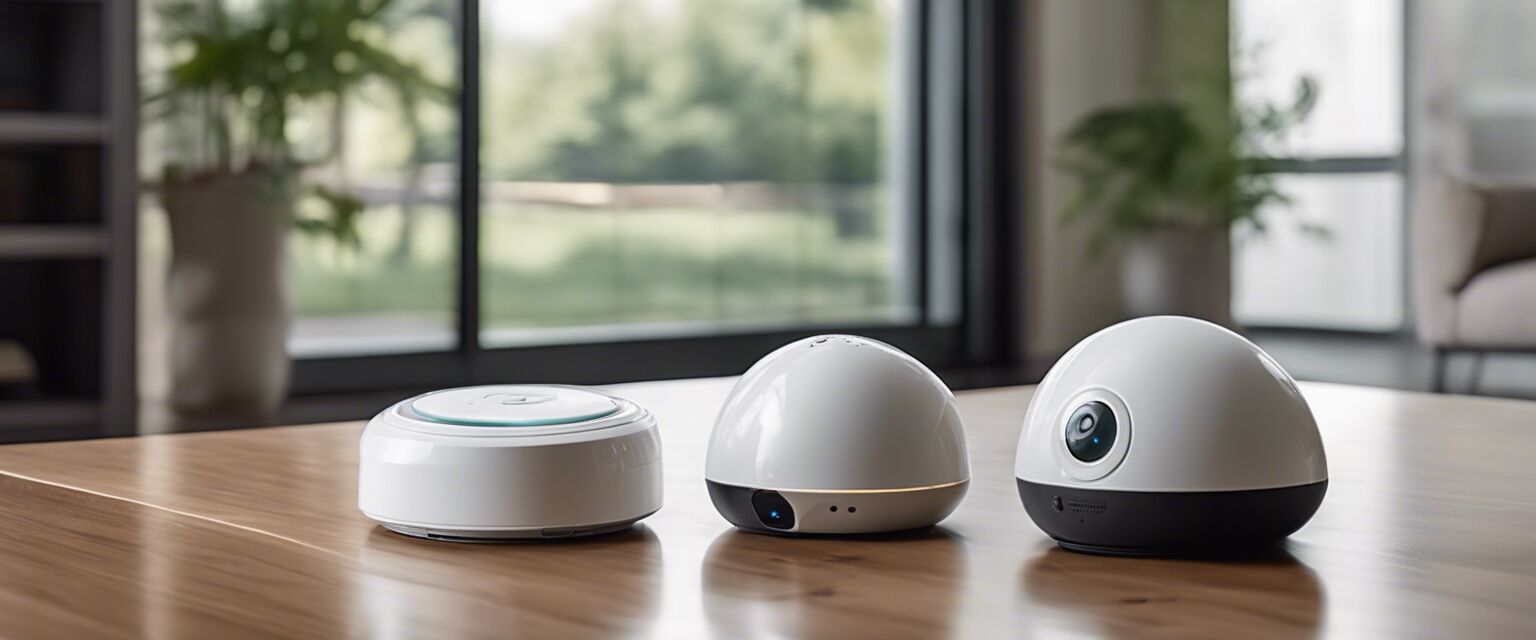
Top Smart Sensors for Comprehensive Home Coverage
Key Takeaways
- Smart sensors enhance home security by providing real-time alerts.
- Look for features such as integration with home automation systems, remote monitoring, and customizable alerts.
- Understanding the types of smart sensors available can help you choose the best options for your needs.
In today's world, ensuring the safety of your home is more important than ever. Smart sensors have emerged as a vital component of comprehensive home security systems. They not only provide alerts but also integrate seamlessly with other smart devices in your home. In this article, we'll explore the top smart sensors available, their features, and tips for selecting the right ones for your security needs.
Types of Smart Sensors
Smart sensors fall into several categories based on their functionality. Understanding these types can aid you in making an informed decision:
- Motion Sensors: Detect movement within a specific area.
- Window and Door Sensors: Alerts when doors or windows are opened or closed.
- Environmental Sensors: Monitor changes in environmental conditions, including temperature and humidity.
- Flood Sensors: Detect water leaks or flooding issues.
- Glass Break Sensors: Trigger alerts when glass is shattered.
Top Smart Sensors Overview
Below, we present a curated list of the top five smart sensors designed for comprehensive coverage:
| Sensor Type | Feature Highlights | Price Range |
|---|---|---|
| Motion Sensor | Real-time alerts, Pet immunity, Integration with alarms | $30 - $150 |
| Window and Door Sensor | Easy installation, Wireless connectivity, Smartphone notifications | $15 - $70 |
| Environmental Sensor | Temperature alerts, Humidity monitoring, Historical data logs | $25 - $100 |
| Flood Sensor | Immediate alerts, Battery backup, Wireless communication | $30 - $90 |
| Glass Break Sensor | Sensitivity adjustment, Wireless setup, Integration with alarms | $40 - $120 |
Choosing the Right Smart Sensors
When selecting the best smart sensors for your home, consider the following factors:
Tips for Beginners
- Compatibility: Check if the sensors are compatible with your existing smart home system.
- Range of Detection: Look for sensors that cover the necessary areas of your home.
- Power Source: Consider battery-operated versus hardwired options based on your preference.
- Alerts and Notifications: Ensure that the sensors send customizable alerts to your smartphone.
- Customer Reviews: Read reviews to understand user experiences and potential issues.
Cost Considerations
The cost of smart sensors can vary widely, depending on features and types. Below is a brief overview of what you might expect to invest:
- Basic motion sensors start around $30.
- Environmental sensors range from $25 to $100 based on functionality.
- Advanced flood and glass break sensors may cost upwards of $90.
Conclusion
Smart sensors are essential tools for enhancing your home security. By understanding the various types available and their features, you can effectively choose the right sensors for your needs. Investing in these devices not only safeguards your home but also provides peace of mind. For more options, check out our motion sensors and home security systems categories.
Pros
- Enhances overall security of the home.
- Provides real-time alerts for immediate response.
- Integration with other smart home devices.
- Customization options for various environments.
Cons
- Can be expensive depending on features.
- Requires proper installation for maximum effectiveness.
- Batteries need to be monitored and replaced.
Explore More
If you're interested in enhancing your home’s security, consider checking out our tips and best practices for smart home systems, or browse our home automation devices to learn more about integrating your security system. For the latest trends, don’t miss our news & trends category!
